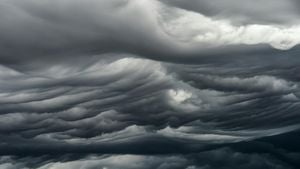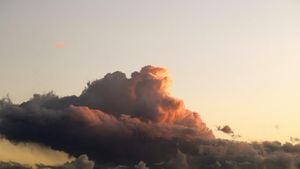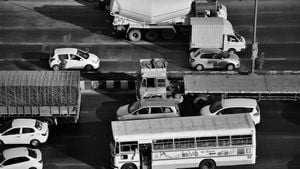The University of California, Los Angeles (UCLA) recently found itself at the center of controversy following federal court rulings aimed at protecting Jewish students' access to campus amid pro-Palestinian protests.
U.S. District Judge Mark Scarsi issued a preliminary injunction requiring UCLA to prevent any actions by protesters from blocking Jewish students' access to buildings, classes, and other campus services.
This ruling seems to be unprecedented as it addresses the consequences of protests related to the Israel-Palestine conflict at American universities.
Three Jewish students at UCLA—Yitzchok Frankel, Joshua Ghayoum, and Eden Shemuelian—filed the lawsuit claiming their religious identification was used against them during campus protests.
According to the complaint, activists had erected an exclusionary encampment on Royce Quad, requiring individuals who did not express support for Palestine to wear specific wristbands to gain access.
Judge Scarsi’s ruling described the treatment of the Jewish students as "unimaginable" and "abhorrent," emphasizing the federal obligation to protect all students’ access rights.
He stated, "Jewish students were excluded from portions of the UCLA campus because they refused to denounce their faith," setting the basis for his ruling.
Scarsi’s order forbids UCLA from permitting any activities, programs, or access to campus if they are not fully accessible to Jewish students.
The ruling contains clear directives prohibiting UCLA from knowingly allowing the exclusion of Jewish students, effectively turning the onus on the university to enforce access rights.
Despite acknowledging the issues raised by the students, UCLA has contended it cannot be held responsible for actions taken by third-party protesters and has committed to working closely with law enforcement.
Mary Osako, UCLA’s Vice Chancellor for Strategic Communications, commented on the ruling, asserting it would hinder their ability to manage dynamic campus events effectively.
UCLA recently increased security measures after tensions surged during previous protests, which included confrontations between pro-Palestinian demonstrators and pro-Israel students.
The chaotic scenes reached their peak on April 30, when masked assailants attacked the pro-Palestinian encampment, leading to injuries and chaos.
UCLA has been under scrutiny for its handling of campus protests and associated violence, as critics labeled the university's response both delayed and excessively forceful.
Following the protests, UCLA made strides toward establishing new safety protocols, including the formation of the Campus Safety Office.
The university remains committed to fostering an inclusive environment on campus and actively addressing concerns from all student communities.
"We’re closely reviewing the Judge’s ruling and considering all our options moving forward," Osako stated, highlighting UCLA's next steps.
Critics of UCLA’s proposed measures believe more definitive actions are necessary to safeguard the rights and safety of Jewish students.
With growing tension on campuses nationwide linked to the Israel-Palestine conflict, the spotlight remains on UCLA to navigate these complex issues carefully.
Activists, supportive and critical of the ruling, now watch closely as the university balances free expression with the need for safety and inclusivity.
The court decision has sparked discussions about the rights of all students on college campuses and how to handle protests without infringing on others' freedoms.
Both sides of the issue continue to rally for support, emphasizing their perspectives amid the escalating situation on campuses.
Yitzchok Frankel expressed the urgency of the ruling by stating, "No student should ever have to fear being blocked from their campus because they are Jewish."
So, as the university considers its position and future actions, many are left contemplating how to balance free speech with the need for inclusivity on campus.



